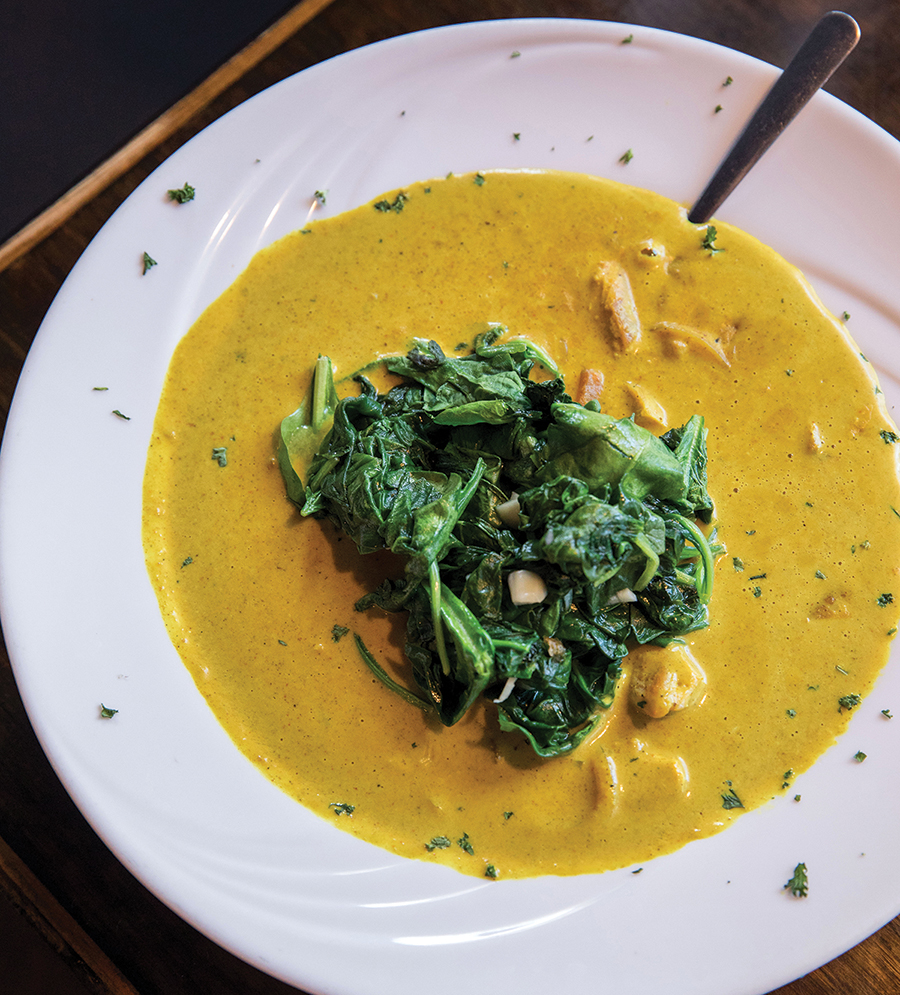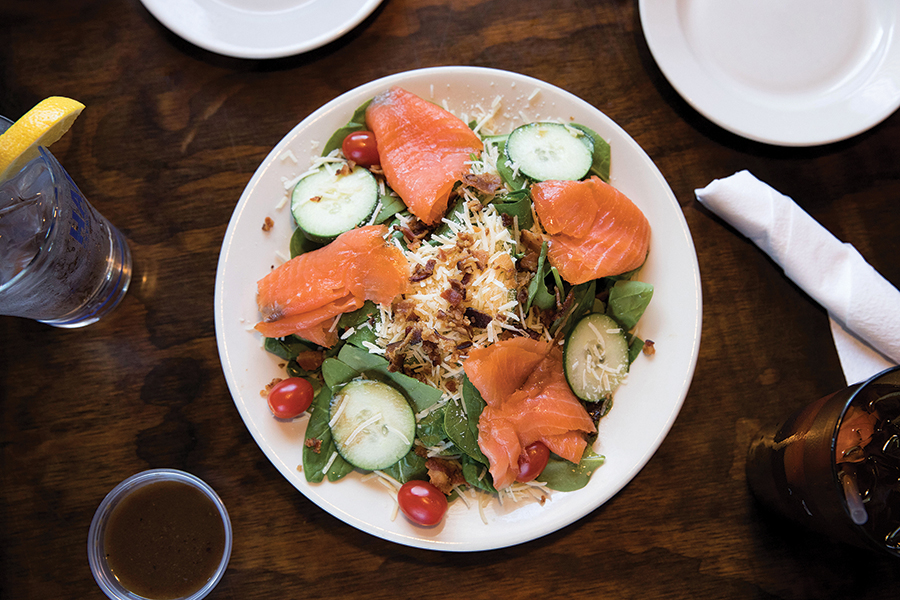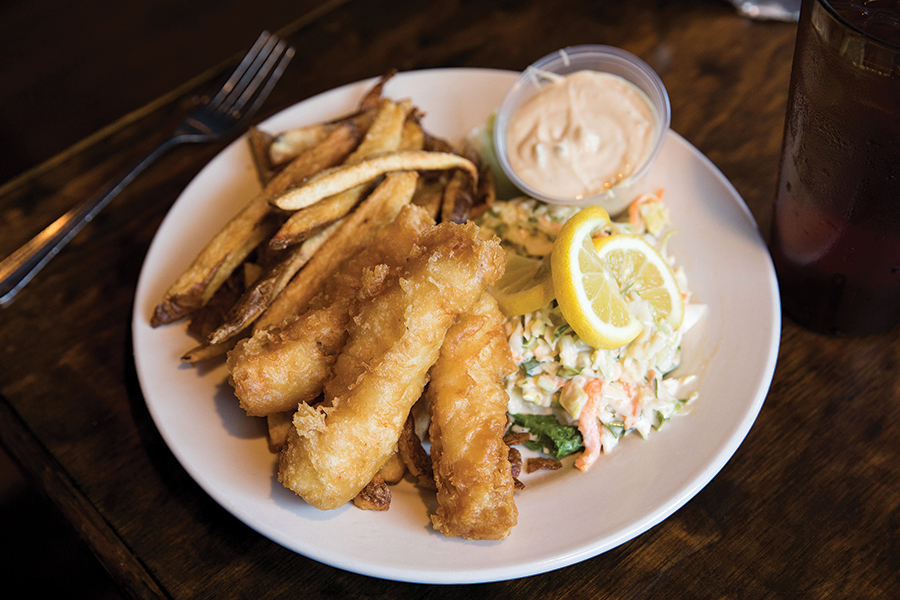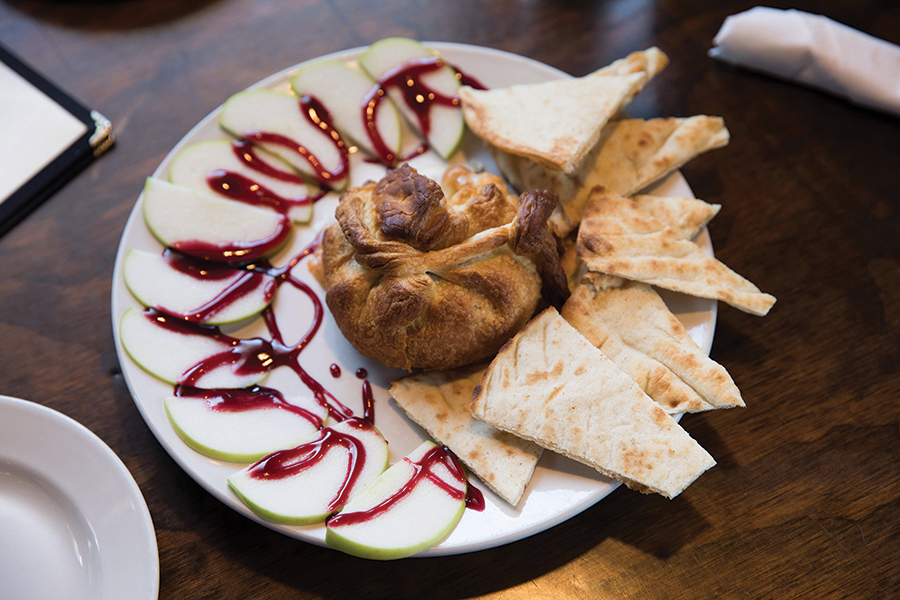For WHQR’s Rachel Lewis Hilburn, civil discourse begins with an open mic — and mind
By Dana Sachs
If you’ve ever listened to WHQR News — and you probably have, as it’s one of the most popular radio news channels in southeastern North Carolina — then you’ve heard the station’s news director, Rachel Lewis Hilburn. Simultaneously soothing and urgent, Rachel’s deep, melodious voice telegraphs two essential pieces of information at the exact same moment: This is important, and don’t freak out.
In other words, it’s a voice for our time.
On CoastLine, the public affairs show that Rachel hosts on WHQR, she covers a wide range of subjects. She’s held programs discussing the complicated issues related to affordable housing. She’s brought in educators and activists to debate the issue of neighborhood schools. She has hosted a program on CAFOs (Concentrated Animal Feeding Operations, in case you’re wondering, and, yes, that’s a technical term for hog farms). When Rachel and I meet for lunch at the Harp Irish Restaurant and Pub, she tells me that during every CoastLine discussion she tries to guide the conversation without stepping into the middle of it herself. Her goal, she explains, is to become “the frame for the picture,” using her questions to create lively, provocative and informative programming. “The mission,” she says, “is to help people make educated decisions about things.”

In person, Rachel has the same calm, pensive manner that you can hear in her conversations on the radio, but she’s quick to laugh, too, especially over her own hesitancy at finding herself, now, on the receiving end of an interview. “I like to recede,” she admits, looking at me slyly. Still, today she’s game. We’ve come together to discuss a subject that, Rachel says, “is the one thing that I’m outspoken about.”
Rachel wants to talk about talking — “civil discourse,” as she calls it. These days, she tells me, our society has become so polarized that many of us have lost the ability to engage in thoughtful conversation. “I feel like somebody needs to be out there and encouraging people to reach beyond their ideological limits,” she says.
For Rachel, that means learning to listen to someone with whom you disagree — “really enter the experience of that person,” as she puts it. To give me an example, she goes right to the heart of things — the abortion debate — and suggests that people who hold different opinions sit down and try to understand each other’s concerns. Abortion opponents, she says, “feel like there’s murder happening in front of them.” At the same time, those who support abortion rights believe that laws limiting access “take away the rights of women.” Each of these perspectives has a logic and moral basis that Rachel believes deserve respect: “If you’re pro-choice, you don’t want to inflict suffering. And if you’re pro-life, you don’t want to inflict suffering.”

Listening to an opposing perspective can, of course, produce anxiety. “People worry that they’ll lose their identity if they listen deeply,” Rachel says. Politicians in particular often refuse to engage in open-minded discussion: “They learn to listen to the other side’s buzzwords well enough to ridicule them.” Rachel saw this strategy play out during CoastLine’s candidate forums before the 2016 elections. Even for local races, guests rarely strayed beyond their canned talking points. “I got pretty frustrated,” she tells me. “I just felt like saying, ‘This guy’s a Republican. This guy’s a Democrat. I’m done.’”
Such aggravations provide a good excuse to down a shot of Jameson or a pint of Guinness but, alas, we both have to return to work this afternoon. We take consolation, instead, in fish and chips — crisp, flaky planks of cod served with house-cut fries, cole slaw and the requisite vinegar — and a round of Brie baked inside puff pastry. “It’s very rich and buttery,” Rachel says of the dish, pointing out that the accompanying crunchy slices of Granny Smith apple offer “a really nice counterweight” to the gooey melted cheese.

It’s possible to eat at the Harp without trying the Irish dishes. You could have your fill of wings or chicken tenders, but why would you do that? Order, instead, the Irish Curry Chicken. The dish’s creamy sauce, made from scratch in the kitchen, evokes thoughts of Raj-era India with hints of coriander, cumin and clove. Rachel and I make it gluten free by substituting sautéed spinach for rice, and if that’s not the way one eats curry in either Dublin or Delhi, doing so makes us feel virtuous enough to order Bailey’s Cheesecake for dessert. There’s never anything subtle about a cheesecake, especially one that sits atop a crunchy chocolate-chip-speckled graham cracker crust, but it takes a moment before we both detect the signature flavor of Bailey’s Irish Cream. “It’s that taste I remember from high school!” says Rachel.
When Rachel discusses the need for better communication, she recognizes the enormity of the barriers that remain. Not long ago, she gave a public talk advocating for improvements in civil discourse. The audience seemed to be listening attentively, but then one woman stood up and indicated that she, at least, was not. “If I go to a family gathering,” she said, “and my sister-in-law says how she feels about a certain candidate, how can I get her to hear me?”
Recounting this story, Rachel sighs, then repeats the question: “How can I get her to hear me?” For a moment, Rachel just gazes at me from across the table. Then, she says, “We need to enter not with a need to be heard, but with a need to understand. There’s so much magic in seeking to understand.”

Getting people to open their minds is not an easy goal to achieve, particularly during these times of heightened tension, and Rachel knows that. She’s unwilling to give up, though, and so she looks for reasons to be optimistic when she can. For the CoastLine broadcast on CAFOs Rachel brought in, as guests, a representative of the pork industry and a former state legislator responsible for the moratorium on new hog farms. After the program ended and the microphones went off, she noticed that those two kept talking. The industry representative offered to take the environmentalist on an aerial tour to see how much had changed in the years since the moratorium went into effect, and the environmentalist seemed amenable to making the trip. Eventually, the two walked out together, still deep in conversation, and Rachel felt a glimmer of hope. Two people talking with each other doesn’t signal seismic change. But, still, she told herself, “It’s an opening.”
The Harp, at 1423 South Third St., opens every day at 6 a.m. For more information, visit www.harpwilmington.com. Rachel Lewis Hilburn hosts CoastLine every Wednesday and Thursday at noon on WHQR radio. For a schedule and links to previous shows, visit www.whqr.org.
Dana Sachs’s latest novel, The Secret of the Nightingale Palace, is available at bookstores, online and throughout Wilmington.


